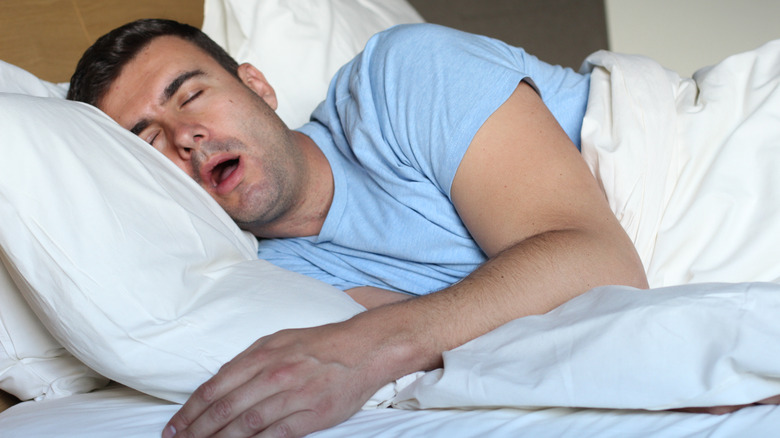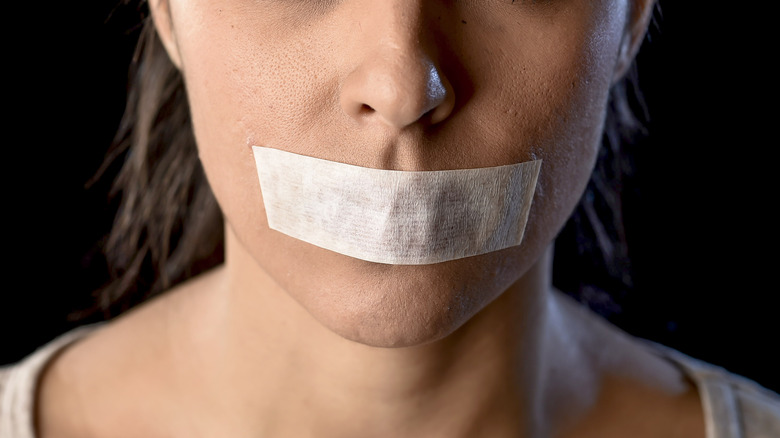What It Means When You Wake Up With A Dry Mouth
Waking up with a dry mouth can have you reaching for a glass of water before you even get out of bed. Dry mouth, or xerostomia, is the result of not having enough saliva in your mouth, and it can lead to a host of problems including hoarseness and a sore throat (via WebMD). It can even make it tough to swallow or speak until you get that first drink of water. So what makes your mouth dry out overnight in the first place?
There are several reasons why you might wake up with a dry mouth. Sometimes, a dry mouth upon awakening is caused by sleeping with your mouth open. In turn, that can be caused by a variety of things, including sleep apnea, especially obstructive sleep apnea (via PubMed). If you take medication for anxiety, depression, high blood pressure, or pain, it could also contribute to your dry mouth (via Mayo Clinic). In addition, dry mouth is a common problem for the elderly, according to Aging Care.
How to reduce dry mouth at night
Treatment for dry mouth depends on the cause, but if you can breathe through your nose, that would be an easy remedy. One way to help you sleep with your mouth closed is to sleep with your mouth taped. Yes, it sounds strange, but according to Everyday Health, taping your mouth at night produces nitric oxide in the sinuses, which can aid in reducing inflammation and lead to better sleep.
If you do not think that sleeping with your mouth open is the cause of your dry mouth in the morning, then you may want to explore if any medications might be causing it. If you see that dry mouth is a side effect of a drug you are taking, talk with your doctor about a different dosage or perhaps another medication (via Medical News Today). However, you should not stop taking your medication until you have consulted with your healthcare provider.
Avoiding tobacco products and staying away from caffeine at late hours can help keep your mouth from drying out overnight as well. If nothing else seems to work, you could ask your doctor or dentist about medications that increase your saliva production at night (via Medical News Today).


